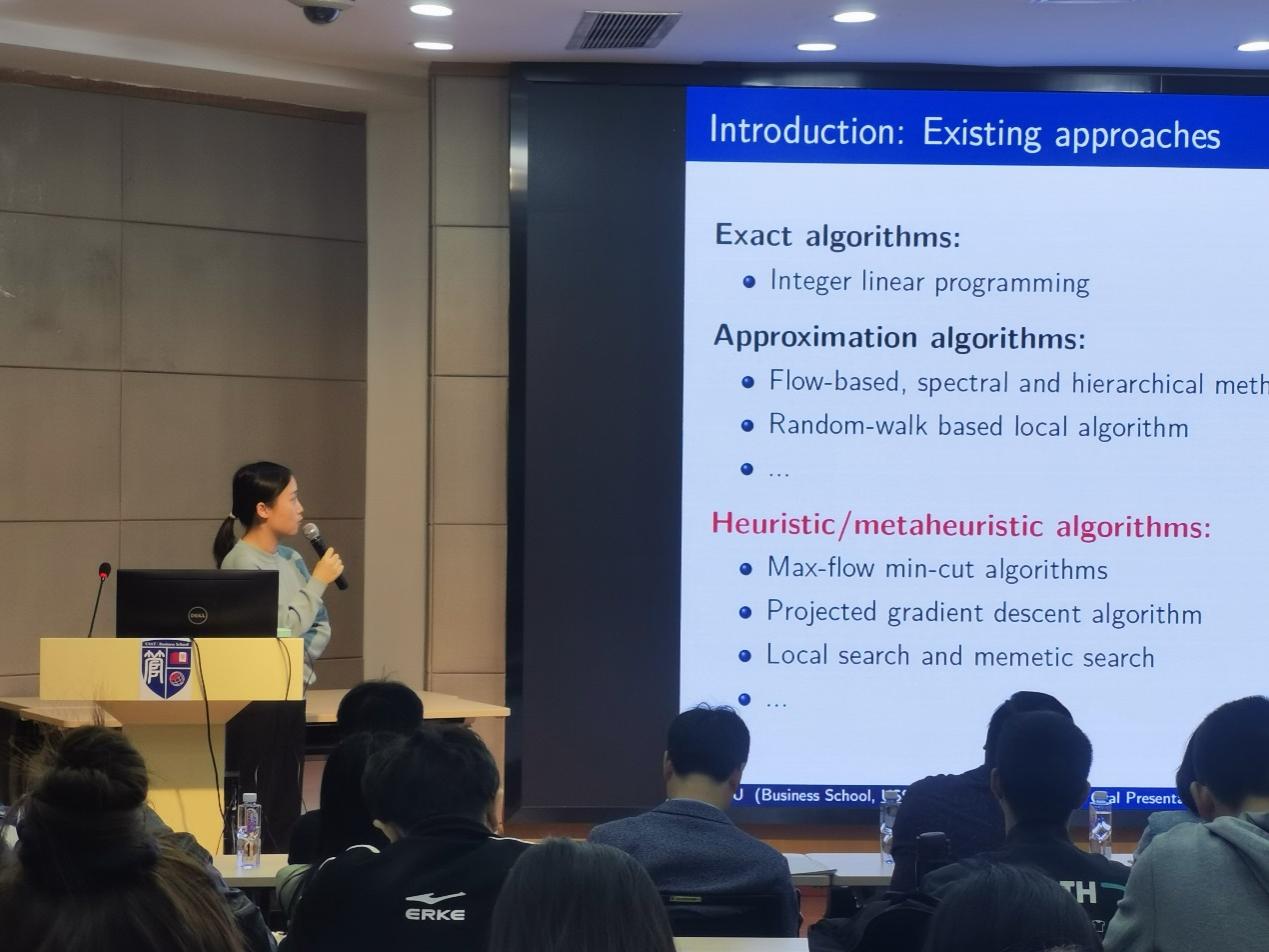Academic Salon for Young Scientists, the 9th event of Academic Series of “Hujiang Economy & Management Symposium”, was held atthe Second Lecture Hall of Block A of Economy & Management Building. Two young faculties, Dr. LU Zhi and Dr. ZHOU Yiwei of the Business School, delivered the lecture. An audience of 100 faculties and students or so attended the salon including Dr. HE Jianjia, Vice Dean of the USST-BS, Prof. GAN Hongchen and others. The salon was chaired by Prof. GAN Hongcheng.
Before the lecture, Dr. HE Jianjia briefly emphasized the positive effect of such academic events on faculties and students to grasp the academic frontiers and improve research capabilities. Then, Dr. LU Zhi gave a lecture entitled Optimization approaches for minimum conductance graph partitioning. The speech began with an introduction of the NP-hard optimization problem and its background and an overview of the current research status and limitations. After that, Dr. LU introduced three types of optimization algorithms, and elaborated on the research framework, theoretical analysis, algorithmic challenges, and experimental analysis. Dr. LU further stated that theoretical analysis and algorithm design are the hot topics in the field of operational decision making and combinatorial optimization research. The latter combined with machine learning is gaining more and more attention. After a specific account of the study, Dr. LU gave a brief summary of her presentation and an outlook on future research.
Next Dr. ZHOU Yiwei gave a lecture entitled A spatial model with endogenous weight matrix for investigating travel flow differences between peak hours with massive mobile phone data. Dr. Zhou first introduced the background of urban traffic flow analysis and pointed out that the current research has ignored the spatial effect and endogenous problem. Then, Dr. ZHOU elaborated on the selection of variables, theoretical modeling, and analysis of results to confirm the existence of endogenous spatial effects. He further pointed out that variables such as the number of office buildings and shopping malls have significant effects on the difference of traffic flow in morning and evening peak hours. He further conducted the relevant policy analysis based on the 14th Five-Year Plan of Hangzhou City. Finally, Dr. ZHOU summarized the shortcomings of the current research and gave an outlook on future research.
The hall was packed with students and faculty members. There were active discussions between the speakers and the audience. The salon, which has broadened the attendants’ international vision and academic thinking, was successfully concluded in a warm and pleasant academic atmosphere.


Translator: TAO Xiangming
Reviewer: ZHOU Huijun


